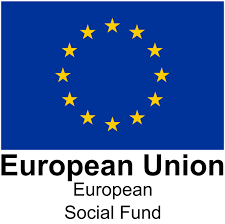

This week we’re share some good news stories from our ESF Dorset Skills for Young People Programme, which is managed by Partnership and Contracts Manager, Jo Osgood.
Nola from Weymouth College reports how the ESF Dorset Skills for Young People Programme has helped vulnerable young people.
Weymouth College have utilised their ESF Dorset NEETS Skill for Young People programme funding to run their Step Forward Project; Step Forward was established in September 2019 tailored to meet the individual needs of vulnerable students within the college. Step Forward has had a bi-fold impact. It is designed to support students at risk of NEET by engaging them in an intense programme and helping them re-engage with their course with a view to successfully completing. The program is also designed to work with students that are currently not engaged in education, employment or training and are therefore NEET. The program is funded by European Social Fund. Utilising the skills of the team, as well as partners from external agencies, we have been able to provide a programme which has proved successful in supporting their vulnerable young people.
Nola reflects on three cases that she felt had benefited most from the program in this last academic year.
Prior to engaging with the program, all three participants had an extreme barrier regarding confidence and previous education experience. They were unclear about any short-term goals, and certainly could not consider long-term goals.
The first few months were very challenging as they found their feet, and gained a routine, and spent time getting to know people that would support them within the college and as part of the programme. Academically, all three participants were able, but emotionally all three had their own barriers. Anxiety, low resilience, difficulty processing emotions, and confidence with some of the main barriers which made previous learning experiences very difficult.
Working with each participant within a group, and individually, the project helped them to understand emotions, ways to develop resilience, services they could access, the benefits of peer support, and ways to improve their confidence. This was delivered through a series of workshops as well as some outdoor activities around teambuilding and communication. Participants helped in some of the areas of the college where customer service skills are important, and this helped them develop their confidence in communication.
Participant X was a 17-year-old female, who had not been in education since the age of 13, due to bullying and extreme anxiety experienced from her peers at school. Participant X also comes from a very complex family background, with a number of siblings and a variety of external agencies in place. I worked with participant acts prior to her enrolling on a programme and have continued to support her throughout the past academic year. Her anxiety has reduced, her motivation has increased, she is no longer isolated and now has a friendship group. For the first time in four years, participant X has experienced a positive educational journey.
Participant H was also a 17-year-old female, who had spent the past couple of years in and out of education that came to the college having not engaged in education within the past year. Again, participant H had experienced a poor view of education prior to our program. She had no friends, no interests, no motivation, very low self-esteem and lacked confidence.
Participant D was a 16-year-old female, looked after child. Participant D had been in the care system for a significant number of years and was still considered to be very vulnerable. Education had been very difficult for participant D, and she had spent some time at a learning centre but failed to engage with education prior to college.
All three participants worked with me as a group and on one to one basis. We met weekly and worked through a program exploring mental health, emotional health, and ways to develop resilience. We explored services locally, nationally, and online that could support them with their needs. They receive support in the classroom and were all within the same class so formed a friendship group and gained peer support that they had never previously experienced. During one to ones, I was able to establish any additional support they may need individually and tailored the program to meet their needs.
All three participants not only went on to successfully complete their first year at college with the support from the program and a result of the intervention and actions that were tailored to their needs, but they are also enrolled to attend a further year in which the program will continue to support them before they join mainstream education. Participant X and her family cannot believe that she has achieved a full year of education, and this is despite COVID-19, which could have had a negative impact. Participant H was recognised by her year group, as student of the year and will receive an award later this academic year once some degree of normality resumes. Her attendance was 100%, and her confidence and ability to speak out and be heard has grown significantly.
Participant D is re-joining a mainstream course in catering and is excited to undertake the challenges this program will provide.
The families of all three participants have observed a significant change for the better with the young people. Whether this has been an increase confidence, having peers and friendships which have enabled them to develop resilience, or being able to manage them emotions better.
The Skills for Young People project which is open to participants aged 15-24 who are at risk of or, already, not in education, employment or training (NEET). The programme will focus on those who are at risk of social exclusion and young people from marginalised communities.
Email the team on skillssupportteam@cswgroup.co.uk for more information

